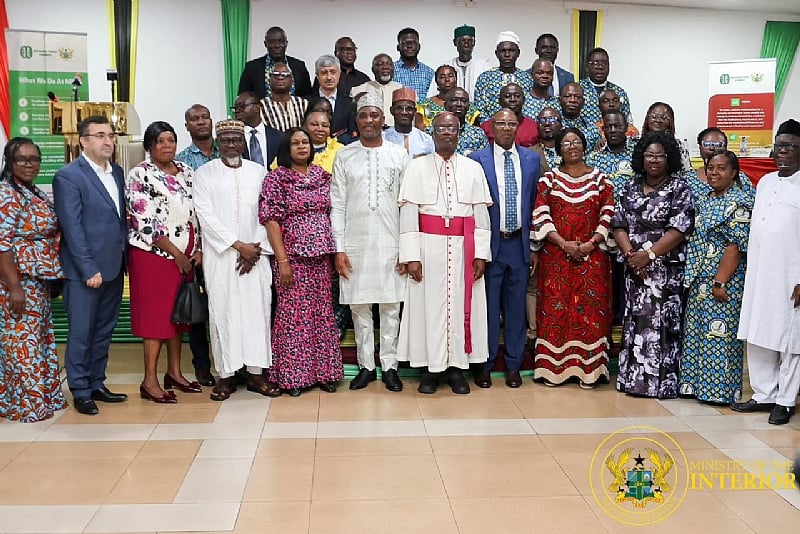The signing of the Memorandum of Understanding (MoU) on religious tolerance in Ghanaian schools marks a significant step towards fostering inclusivity, respect, and peaceful coexistence within educational institutions. This agreement, spearheaded by the National Peace Council and religious missions, provides a practical framework for addressing and preventing religious discrimination, ensuring that all students, regardless of their faith, feel safe, valued, and respected within the learning environment. Deputy Education Minister Dr. Clement Apaak emphasized the importance of this MoU, noting that while Ghana’s education system has historically benefited from the contributions of mission schools, recent incidents of religious conflict underscore the urgent need for a unified approach to promoting tolerance and understanding.
The MoU represents a collective commitment to creating a harmonious educational environment where students of diverse faiths can learn and grow together. It aims to safeguard the rights of every student, ensuring that none are disadvantaged or excluded due to their religious beliefs. The agreement serves as a call to action for all stakeholders within the education sector, including teachers, administrators, students, parents, and community members, to actively promote respect, understanding, and empathy among individuals of different faiths. This commitment to inclusivity extends beyond the classroom, contributing to national unity and security by fostering tolerance and understanding among future generations.
The Ministry of Education has pledged its unwavering support for the implementation of the MoU, recognizing its crucial role in shaping a more tolerant and inclusive society. The Ministry will collaborate with key stakeholders, including the Ghana Education Service, the National Peace Council, and mission authorities, to develop and implement comprehensive awareness campaigns and training programs. These initiatives will ensure widespread understanding and adherence to the provisions of the MoU, promoting its effective implementation across all educational institutions. The Ministry’s commitment underscores the importance of education as a unifying force that equips students with the values and skills necessary to become responsible and tolerant citizens.
The success of the MoU hinges on the collective efforts of all stakeholders. Parents, communities, and students themselves are urged to embrace the principles of the agreement and actively contribute to fostering an inclusive and harmonious learning environment. By working together, they can create a culture of respect and understanding, where differences are celebrated rather than being a source of conflict. This collective responsibility extends to reporting any instances of religious discrimination or intolerance, ensuring that the principles of the MoU are upheld and that all students feel safe and valued.
The MoU on religious tolerance is not merely a document but a symbol of Ghana’s commitment to building a more inclusive and peaceful society. It represents a proactive approach to addressing the challenges of religious diversity within educational institutions, ensuring that schools remain spaces where students can learn and grow together, regardless of their faith. This commitment to inclusivity extends beyond the classroom, contributing to national unity and security by fostering tolerance and understanding among future generations.
By promoting religious tolerance and understanding in schools, Ghana is investing in its future. The MoU serves as a testament to the nation’s belief in the power of education to shape a more tolerant, inclusive, and peaceful society. This commitment to interfaith harmony not only strengthens the educational system but also contributes to the overall social fabric of the nation, fostering a climate of mutual respect and understanding among all citizens. The MoU is a beacon of hope, illuminating the path towards a more peaceful and inclusive future for all Ghanaians.














